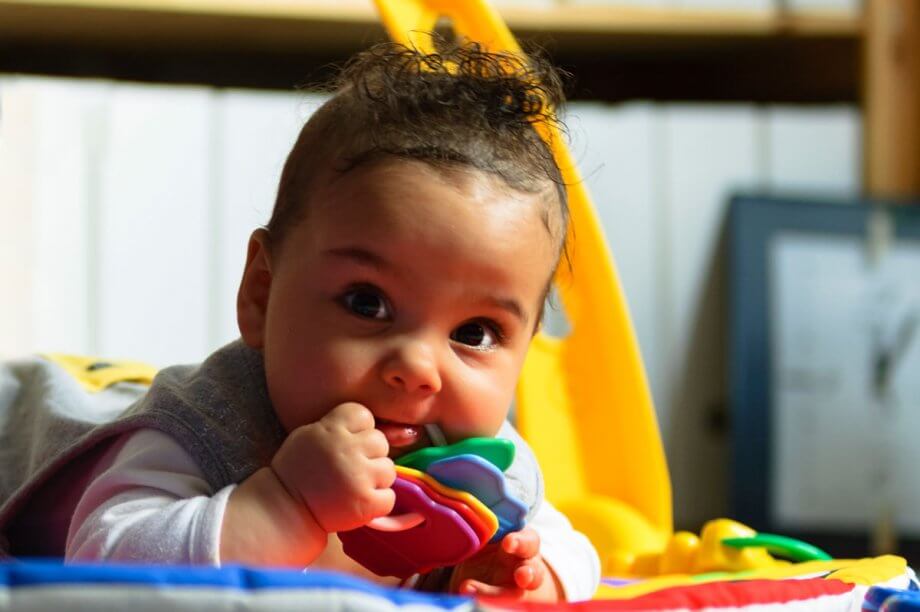It’s an exciting milestone when we see those first bits of white poking through our baby’s gums, but all parents know that the lead up to those initial few teeth can be rough, to put it mildly. They’re crying, soaked with drool, uncomfortable, not sleeping well—and in those rare moments when they’re not screaming, they’re crawling around the house putting everything they can get their hands on into their mouths!
Many parents have questions about the teething process, so we’ve taken the time to answer a few of the more common ones we get below.
When Do Babies Start Teething?
Even though those first teeth don’t begin to erupt until a baby reaches four to seven months old, the process begins earlier with those telltale teething signs: fussiness and drooling. This can continue for weeks before the teeth emerge. By the age of two, your child should have a complete set of baby teeth.
What Are the Signs of Teething?
Drooling is one of the most common signs of teething. If your baby is going through a few bibs a day, they’re likely getting ready to sprout some teeth. Their gums feel itchy too, which they soothe by gnawing on toys, blankets, fingers, and anything else within arms’ reach.
Once the teeth are close to erupting, the itchy feeling turns to discomfort, which is when the fussiness and irritability start. This can lead to a loss of appetite and fitful sleep—even babies that were previously sleeping through the night may wake up several times needing to be comforted.
Despite what your well-meaning older relatives might tell you, fever and diarrhea are not signs of teething. Pediatricians think that because teething babies put so many things in their mouths, it makes it easier for them to pick up stomach bugs and viral illnesses.
How Can You Soothe Teething Problems?
Firm rubber teething rings are the best option for soothing sore gums. You can also gently massage the gums using a clean finger, pop your baby’s pacifier in the freezer for a bit, or let them chew on a washcloth soaked in cold water. A small dose of a children’s pain reliever can be used too, but you should contact your child’s pediatrician for recommendations on frequency and dosage amount.
Do not use homeopathic teething products, teething gels and creams that contain benzocaine, and teething jewelry, which is a choking hazard.
When Should Children Start Seeing the Dentist?
Your child’s first dental visit should be around the time of their first birthday or within six months of the eruption of their first tooth. This appointment will help us ensure that your baby’s teeth are healthy and erupting without any problems. We’ll also give you tips on how to maintain your child’s oral health. Before your child’s teeth erupt, you can use a washcloth to clean the gums morning and night, then switch to a soft silicone toothbrush once those first teeth emerge.
Schedule Your Child’s First Dental Exam
If you have questions about teething or it’s time to schedule your child’s first dental exam, contact us today at 516-226-7337 to make an appointment.

